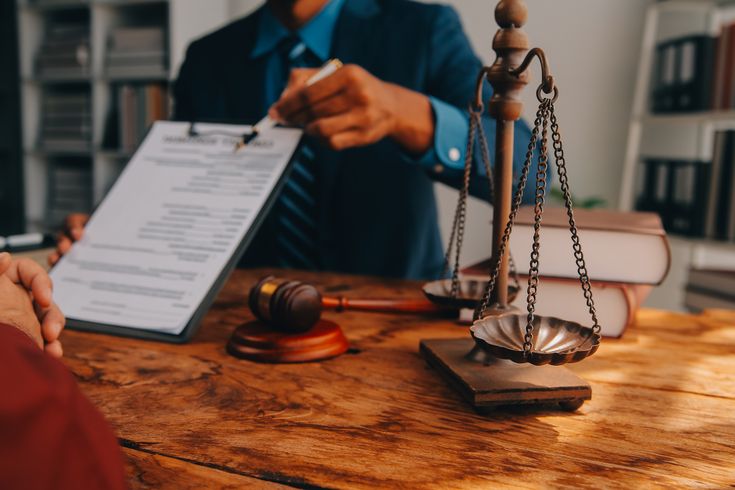When someone cannot manage their own legal affairs, either due to being a minor or lacking mental capacity, they may require the support of a litigation friend.
Acting as a trusted representative, a litigation friend ensures that the individual’s legal rights are upheld and their best interests are protected throughout the legal process.
This guide explains the role and responsibilities of a litigation friend, from their powers and eligibility criteria to the practical steps involved in their appointment and withdrawal.
Whether you’re considering becoming a litigation friend or need one for yourself or a loved one, this resource provides clear and accessible information to help you navigate this vital aspect of legal proceedings.

What Is A Litigation Friend?
A litigation friend is a person appointed to act on behalf of someone who cannot manage their own legal proceedings due to a lack of mental capacity or because they are a minor (under 18 years old).
This role is crucial in ensuring that vulnerable individuals can still pursue or defend claims in court effectively.
The litigation friend acts in the best interests of the individual, making decisions and taking actions necessary for the legal process. This role applies in various cases, including personal injury claims, family disputes, and other civil litigation matters.
The court or an agreement between parties typically approves the appointment. Having a litigation friend ensures that justice remains accessible to those who need additional support.
What Powers Does A Litigation Friend Have?
A litigation friend has wide-ranging powers to make decisions and take steps on behalf of the individual they represent. These powers include instructing solicitors, providing evidence, and attending court hearings.
The litigation friend must always act in the best interests of the individual, focusing on achieving the best possible outcome for the case. They have a duty to understand the legal advice provided and ensure that decisions align with the individual’s needs and welfare.
However, a litigation friend cannot act for personal gain or contrary to the individual’s best interests. Their actions are subject to scrutiny by the court, ensuring accountability and transparency throughout the process.
Who Can Be A Litigation Friend?
Any responsible adult can be a litigation friend, provided they have no conflict of interest and are willing to act in the individual’s best interests. Typically, family members, close friends, or professional advocates take on this role.
The court assesses the suitability of a proposed litigation friend, ensuring they understand their responsibilities and are capable of fulfilling them. Organisations, such as law firms or charities, may also serve as litigation friends in certain cases.
It’s important to note that being a litigation friend requires a commitment to the legal process, including attending hearings and communicating effectively with legal representatives.
For more advice, see this guide from the government on who can be a litigation friend.
Can You Have A Litigation Friend If You Have Capacity?
No, a litigation friend is not necessary if you have the mental capacity to make decisions about your case. Capacity refers to the ability to understand the legal process and its implications, communicate decisions, and act in your own best interests. The definition is contained in the Mental Capacity Act 2005.
However, there may be rare instances where individuals prefer additional support, such as appointing someone to assist informally. In such cases, the individual retains full control, and the supporter does not have the formal status of a litigation friend.
What Does A Litigation Friend Do In An Injury Claim?
In personal injury claims, a litigation friend ensures that the injured party’s case is managed effectively. This includes gathering evidence, instructing solicitors, and negotiating with insurers or opposing parties.
The litigation friend must also make decisions about settlement offers, ensuring they reflect the injured party’s needs and future requirements. If necessary, they attend court hearings and liaise with medical experts to secure fair compensation.
Their role is critical in protecting the rights of vulnerable individuals, ensuring that the legal process runs smoothly and without undue stress for the injured party.
How To Appoint A Litigation Friend
Appointing a litigation friend involves several steps.
- Firstly, the individual or their representative must identify a suitable person willing to take on the role.
- The proposed litigation friend must then complete a formal declaration, confirming their suitability and understanding of the responsibilities.
- If the appointment is uncontested, the court typically approves it. In some cases, such as disputes over suitability, the court may require a hearing to decide. Legal advice can simplify the process and ensure compliance with procedural rules.
Can I Stop Being A Litigation Friend?
Yes, a litigation friend can stop acting in this role, but they must seek the court’s permission to do so. This ensures a seamless transition to a new litigation friend or another arrangement for managing the case.
Reasons for stepping down may include personal circumstances, conflicts of interest, or the conclusion of the case. To withdraw, the litigation friend must inform the court and all parties involved, ensuring the individual continues to receive adequate representation.
Understanding the responsibilities and commitments of being a litigation friend is essential before taking on this important role.
Get More Advice From Accident Claims Lawyers
Now that you’ve learned about the meaning of litigation friends, the role they perform and the eligibility criteria, you may wish for help initiating the process. If so, Accident Claims Lawyers can help.
We work closely with a panel of specialist solicitors who can navigate the complexitites of the claims process, including applications to become a litigation friend.
To find out more, please contact us.

